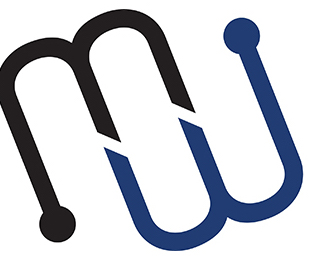
While it was one set away from being swept, Marquette volleyball held an early 2-0 lead against then-No. 7 Oregon.
Looking to add to her team’s momentum, defensive specialist Molly Berezowitz stepped up to the serving line. Her heart was pounding rapidly as the pressure of the moment seeped into her body.
But the first-year knew exactly what to do. She took a few deep breaths and visualized where the ball was going to go.
As the head referee blew their whistle, Berezowitz began her serving motion and watched the ball soar over the net, seeing it hit the floor for an ace.
Deep breathing and visualization are techniques that aren’t new to Berezowitz, as she has been utilizing them for over two years through an app called NeuroFuel.
Launched in October 2020, the app is designed to provide daily content for mental strength conditioning, specifically geared towards the sport of volleyball. Athletes can listen to several different recordings that revolve around concepts like mindfulness, goal setting and having a positive mindset.
Berezowitz, an athlete ambassador for NeuroFuel, said using the app has become an essential part of her pre-game routine.
“It just makes such a difference because you feel like you’ve been in this situation before,” Berezowitz said. “That’s one of the big reasons why I’m using NeuroFuel is to prepare myself both physically and mentally for these huge games.”
Creighton volleyball head coach Kirsten Bernthal Booth, one of the co-founders of NeuroFuel, said that the idea to create the app came when the COVID-19 pandemic occurred.
“For years, we had been doing visualization with the team … When COVID hit, we asked them to visualize five minutes a day, and a couple of our players called me and said we’re really struggling doing this,” Booth said. “I called Doc Widman and said ‘Hey, do we have anything?’”
After long hours of searching for a solution, Booth said she decided to create one herself.
“I asked my assistant to make recordings, and he begrudgingly did it, that we sent to players,” Booth said. “I just remember calling Doc at that point and saying, ‘This is a need. I mean, we can’t be the only ones that could utilize this.’”
Dr. Larry Widman, sports psychiatrist and co-founder of NeuroFuel, said the program started only as a way to help Creighton players, but became an app after realizing how useful it was for athletes.
“It turned out to be a way bigger project than probably we even imagined in our brains at the time,” Widman said. “We were just trying to help a bunch of athletes cope or focus a little bit better during a very weird time in America.”
Berezowitz learned about the app from her younger sister, Kati, who was introduced to it at a high-performance volleyball camp.
“Her coach got this app for the team to use during the whole high-performance tournament and she loved it … She showed it to me and showed me how to use it,” Berezowitz said. “From then on out, my parents bought the membership, and me and my sister have both used it for the past two years.”
During her last club season, Berezowitz found out about the opportunity to become an ambassador after meeting Scott Smith, the CEO of NeuroFuel.
“My (older) sister played volleyball at Kentucky, and his daughter is my age, so she’s a freshman that’s playing at Kentucky right now,” Berezowitz said. “I had no idea that he was the owner of NeuroFuel until at a club tournament when he had a NeuroFuel hat on.”
Smith said he remembers the conversation vividly because of Berezowitz’s excitement about NeuroFuel.
“Through that conversation, they started to connect the fact that we had this connection in Kentucky with the fact that I was involved with NeuroFuel, and so that started a pretty interesting conversation and a lot of enthusiasm around it,” Smith said. “I had a chance to talk with her, her sister and her mom about it. I knew there was a level of interest and familiarity with the app, and that was a neat experience.”
When she got to Marquette, Berezowitz said she jumped at the chance of partnering with NeuroFuel.
“This was a mutual thing where they wanted me, and I wanted them because we both spoke the same words. We have the same mindset about everything we do,” Berezowitz said.
Smith said that athlete ambassadors play a vital role in everything that the organization does.
“It’s one thing to hear somebody like me or a psychiatrist talking about it,” Smith said. “It’s quite another to see somebody you can relate to better. Molly’s relatable to a young female playing sports and certainly playing volleyball. When we have an ambassador, we want them to have experienced the benefits of using NeuroFuel, but we want it to be authentic and genuine. We want them talking about how they are handling situations, that thousands of other people just like them are going through.”
Since its formation, NeuroFuel has partnered with tons of high schools, colleges and even club teams. But what Booth is most proud of is how the program can apply to life itself.
“As humans, we all do this. We speak really negative to ourselves, so if we can train our athletes to talk nicer to themselves, what a transformational thing,” Booth said. “That’s transformational in life. That’s why we gear it toward those adolescents is so many of the club players are never going to play college athletics, but we’re really trying to build humans as we do these things.”
This story was written by Kaylynn Wright. She can be reached at [email protected] or on Twitter @KaylynnWrightMU.
